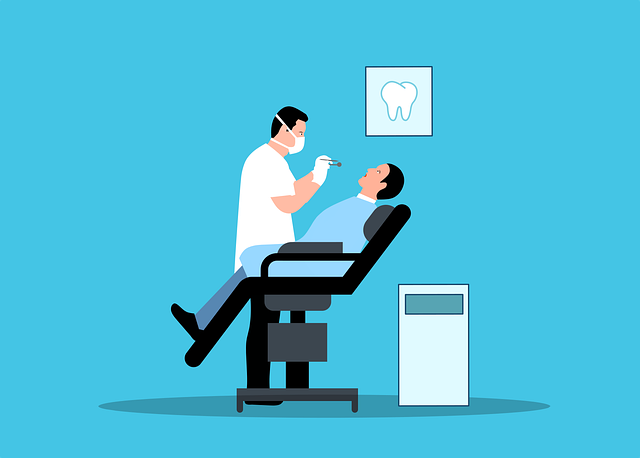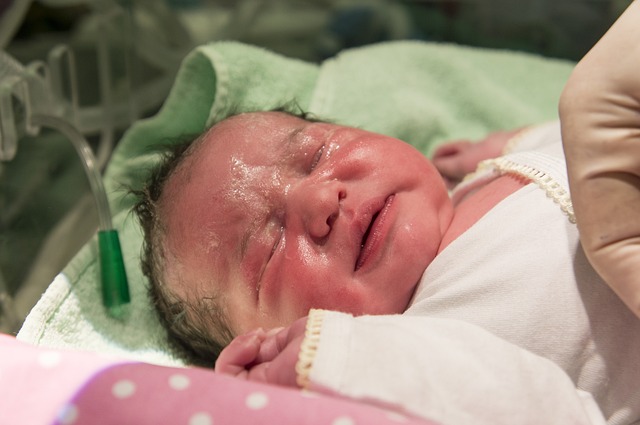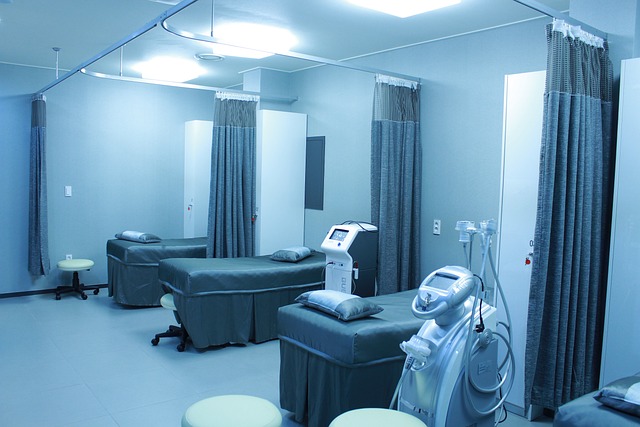The healthcare industry is undergoing a profound transformation with the adoption of holistic diagnostic services, leveraging advanced technologies like regenerative imaging and diagnostic tools in regenerative medicine. This shift enables non-invasive diagnostics with precision imaging, allowing healthcare providers to create personalized treatment plans tailored to individual patients' needs. Advanced imaging technology, including enhanced MRI, ultrasound, and optical imaging, offers detailed insights into the body's structures and functions without invasive procedures. By integrating these tools, medical professionals can enhance diagnostic accuracy, facilitate personalized care, improve patient outcomes, and promote holistic well-being through imaging for regenerative treatment and regenerative diagnostic services.
In today’s digital era, the healthcare landscape is undergoing a profound metamorphosis. Holistic diagnostic services are emerging as a game-changer, shifting the focus towards personalized care that goes beyond conventional methods. This article explores the transformative power of regenerative imaging and advanced imaging technology, revolutionizing how we approach non-invasive diagnostics and precision imaging. By integrating these diagnostic tools in regenerative medicine, healthcare providers can effectively tailor treatments, unlocking new possibilities for patient care and outcomes.
- Understanding Holistic Diagnostic Services: A Shift Towards Personalized Care
- The Role of Regenerative Imaging in Transforming Healthcare
- Advanced Imaging Technology: Unlocking Non-Invasive Diagnostics
- Precision Imaging: Tailoring Treatments with Medical Imaging Tools
- Integrating Diagnostic Tools for Effective Regenerative Medicine
Understanding Holistic Diagnostic Services: A Shift Towards Personalized Care

In the evolving landscape of healthcare, a paradigm shift is underway with holistic diagnostic services taking center stage in the pursuit of personalized care. Traditional medical practices have long relied on invasive procedures and broad-stroke diagnoses, but the future belongs to approaches that cater to the unique needs of each patient. Holistic diagnostic services emerge as a game-changer by leveraging advanced imaging technology and non-invasive diagnostics to provide precision imaging, which is crucial for effective regenerative treatment planning. This innovative approach not only enhances accuracy but also ensures patients receive tailored care plans based on their specific conditions.
Regenerative medicine, a field focused on restoring or replacing damaged tissues and organs, heavily relies on diagnostic tools that can pinpoint areas in need of intervention. By employing various medical imaging tools like regenerative imaging and advanced imaging technologies, healthcare providers gain detailed insights into the body’s intricate structures and functions. This enables them to offer personalized care plans, integrating the best practices from conventional medicine with cutting-edge holistic approaches, ultimately fostering better patient outcomes and improved quality of life.
The Role of Regenerative Imaging in Transforming Healthcare

The advent of regenerative imaging has revolutionized healthcare by introducing powerful diagnostic tools in regenerative medicine. This advanced imaging technology goes beyond conventional methods, offering non-invasive diagnostics that provide precise insights into the body’s intricate structures and functions. With its ability to capture detailed images at a cellular level, regenerative imaging facilitates personalized care plans, ensuring treatments are tailored to individual patient needs.
By integrating imaging for regenerative treatment into clinical practice, healthcare providers can access comprehensive data, enabling them to make informed decisions. Regenerative diagnostic services, powered by cutting-edge medical imaging tools, not only enhance diagnosis but also drive the development of innovative therapies. This transformative approach promises a future where medical care is highly precise and effective, catering to each patient’s unique characteristics.
Advanced Imaging Technology: Unlocking Non-Invasive Diagnostics

Advanced Imaging Technology is revolutionizing the field of regenerative medicine by offering a range of non-invasive diagnostics and precision imaging tools. These cutting-edge technologies, such as regenerative imaging and diagnostic tools in regenerative medicine, allow healthcare professionals to gain detailed insights into the body’s intricate structures without the need for invasive procedures. By employing advanced medical imaging tools, practitioners can now visualize internal organs, tissues, and blood vessels with unprecedented clarity, enabling them to make more accurate diagnoses and develop personalized treatment plans.
With imaging for regenerative treatment at the forefront of modern medicine, these technologies are not only enhancing diagnostic capabilities but also paving the way for more effective regenerative diagnostic services. Whether it’s assessing tissue regeneration after a procedure or tracking the progress of stem cell therapies, advanced imaging plays a crucial role in ensuring optimal patient outcomes. This non-invasive approach not only reduces patient discomfort but also opens doors to earlier detection and better management of various medical conditions, ultimately fostering a holistic and personalized care approach.
Precision Imaging: Tailoring Treatments with Medical Imaging Tools

In the realm of holistic healthcare, Precision Imaging serves as a game-changer, offering tailored treatments through advanced medical imaging tools. This innovative approach leverages regenerative imaging and diagnostic technologies to provide personalized care that goes beyond conventional methods. By combining non-invasive diagnostics with cutting-edge imaging for regenerative treatment, healthcare professionals can now access detailed insights into the body’s intricate structures and functions.
Regenerative diagnostic services utilize these advanced imaging technologies to pinpoint exact areas of concern, enabling doctors to design targeted treatments. This precise approach ensures that medical interventions are as effective as possible while minimizing risks and side effects. With diagnostic tools in regenerative medicine constantly evolving, the future looks promising for enhanced healing outcomes and a more holistic patient experience.
Integrating Diagnostic Tools for Effective Regenerative Medicine

In the realm of regenerative medicine, integrating diverse diagnostic tools is pivotal to achieving personalized care and optimizing patient outcomes. Advanced imaging technology plays a crucial role here, offering non-invasive methods to visualize and assess tissue regeneration, cellular activity, and overall treatment efficacy. By combining traditional medical imaging techniques with precision imaging approaches, healthcare professionals can gain deeper insights into the complex processes involved in regenerative treatments. This holistic diagnostic approach enables tailored interventions, ensuring that each patient receives the most effective care.
Holistic diagnostic services leverage cutting-edge technologies such as enhanced MRI (magnetic resonance imaging), ultrasound, and optical imaging to capture dynamic biological markers. These tools facilitate the monitoring of tissue repair, angiogenesis, and cellular behavior in real time, providing a comprehensive view of the body’s regenerative response. Integrating such diagnostic tools allows for early detection of treatment setbacks or variations in individual patient responses, enabling timely adjustments and ultimately enhancing clinical outcomes.
Holistic diagnostic services, incorporating advanced technologies like regenerative imaging and non-invasive diagnostics, represent a significant shift towards personalized care. By integrating these innovative imaging for regenerative treatment tools, healthcare professionals can effectively tailor treatments to individual patients, enhancing both outcomes and patient satisfaction. As diagnostic tools in regenerative medicine continue to evolve, the future of healthcare looks promising, with more precise, effective, and holistic approaches to healing.
